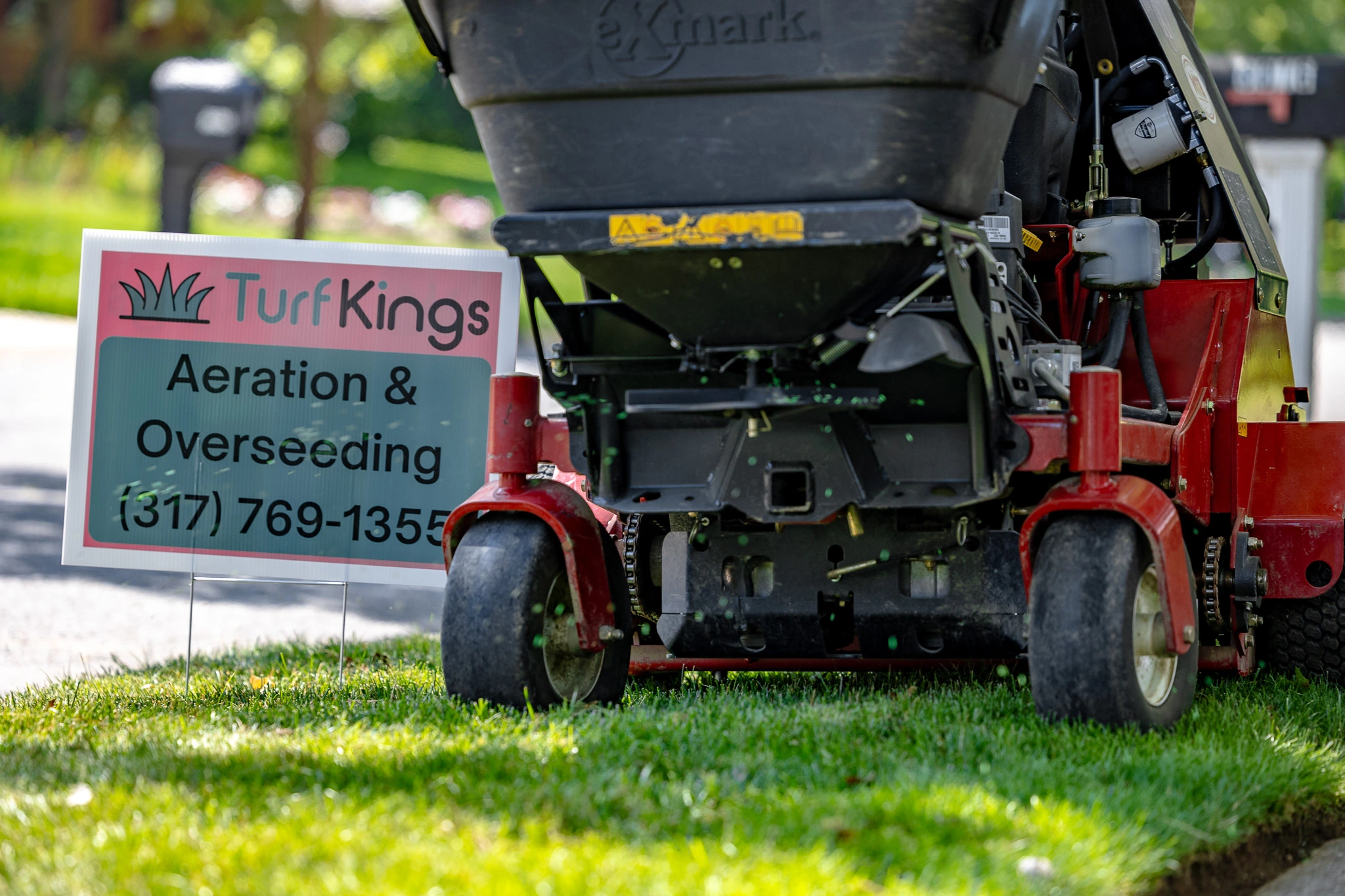Does My Lawn Need Aeration? Signs, Benefits, and Best Practices
If you’re committed to maintaining a lush, healthy lawn, aeration should be a key part of your annual lawn care routine, although to many it is overlooked. While not every lawn may demand aeration every year, if it fits within your budget, annual aeration is highly recommended to keep your lawn looking its best. Let’s dig more into what aeration does to your lawn as well as explore the signs that your lawn needs aeration and how this simple yet effective process can make a significant difference.
Aeration is the process of creating little holes all throughout your lawn, and with those holes there are pathways made in the ground to the root system that allows for increased air, water, and nutrient consumption. It also alleviates compaction and allows the roots to grow and expand.
Signs Your Lawn Needs Aeration
Is something missing? Is your lawn looking more dull than it has in the past? If you’re not aerating annually, certain signs indicate it’s time to aerate your lawn:
1. Heavy Foot Traffic
Lawns that experience a lot of use from childen, pets, or outdoor activities are more prone to soil compaction. If your lawn gets a lot of action, it's likley in need of aeration to relieve that compacted soil. Grass is surprisingly sensitive, so increased amounts of activity makes it mored prone to possible problems occurring with the grass health.
Our lawns are meant to be used of course, but the more traffic on them, the more it takes to keep them healthy and in top shape.
2. Pooling Water
If water tends to sit on the surface of your lawn after watering or raining, it's a sign that the soil is too complicated to absorb moisture effectively. That means that your lawn isn't getting all the benefits from the water that you think it's getting, so adding in aeration will help your grass absorb water more effectively.
Aeration allows water to penetrate the soil and reach the roots, improving overall drainage. Proper water absorption is key for the lush lawn that you yearn for.
3. Thinning Grass or Bare SpotsWhen your grass looks thin or you notice bare patches despite regular watering and fertilizing, compacted soil could be the culprit. Aeration helps the grass roots spread out and grow more robustly. That compacted soil isn’t allowing your lawn to breathe properly, and there isn’t really much airflow going on, but the fine holes made in your soil from aeration allow the proper air and nutrition elements to move through your grass evenly and effectively.
4. Hard, Dry SoilIf your soil feels hard to the touch or is difficult to penetrate with a shovel or garden fork, it’s a strong indicator that the soil is compacted and needs aeration. Dry, rough soil means a dehydrated lawn. Compacted soil will show its consequences in a variety of ways, but thinning grass and dry soil are the most common and alarming effects, so the property owner will know that it’s time to take action. Aeration will allow your lawn to breathe, hydrate, and spread the necessary nutrients in it.
5. Poor Root Development
Shallow-rooted grass struggles to absorb nutrients and withstand environmental stresses like drought and heat. Aeration encourages deeper root growth by allowing the roots to expand into the loosened soil. Healthy roots are what’s going to determine the health of your whole yard. Aeration is key for creating and maintaining healthy root growth, for the holes will allow the roots to be nourished equally.
While some lawns may only need aeration every other year, annual aeration is ideal for keeping your lawn in peak condition. If it fits within your budget, making aeration a regular part of your lawn care routine can lead to long-term benefits and a lawn that stays lush and green year-round.
If you have any thin or bare spots on the property, overseeding with an aeration is a must! This is the best way to fill those areas back in with grass.
Invest in your lawn’s future with annual aeration—because a healthy lawn starts with healthy roots!



Comments (0)
Thanks for your comment!
Thanks for your feedback! Your comments have been successfully submitted! Please note, all comments require admin approval prior to display.
Error submitting comment!
There is a problem with your comment, please see below and try again.